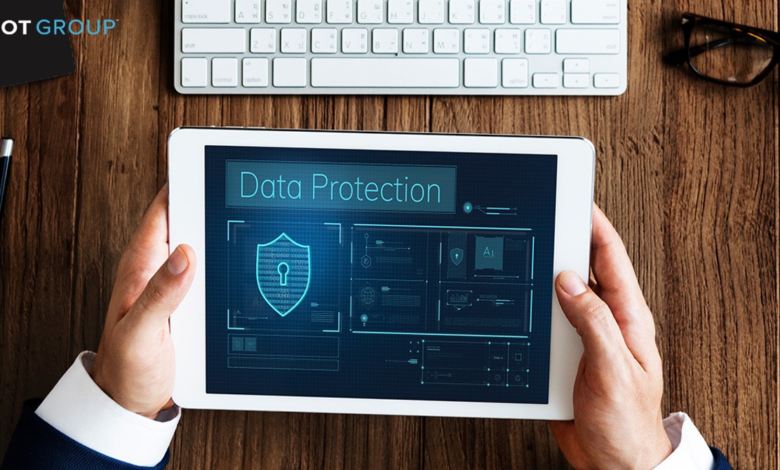How to Protect Your Data Online: Top Cybersecurity Tips for 2024
Protect your data online with these top cybersecurity tips for 2024. Learn essential strategies to enhance your online security and privacy.

In 2024, there has never been a more important time to protect your internet data. Rapid technological improvements have led to a rise in sophisticated cyber threats that affect both individuals and corporations. The digital world is full of risks, ranging from ransomware attacks to identity theft. Strong cybersecurity measures must be put in place as we navigate this always changing cyber environment to Protect Your Data.
We will examine the best cybersecurity advice for 2024 in this post, giving you doable actions to improve your online safety. These guidelines are intended to assist you in Protect Your Data from cybercriminals, regardless of your level of internet usage. You may greatly lower your chance of becoming a victim of cyberattacks and guarantee the security of your financial and personal data by being proactive and knowledgeable.
How to Protect Your Data Online: Top Cybersecurity Tips for 2024
Use Strong and Unique Passwords
One of the simplest yet most effective ways to Protect Your Data is by using strong and unique passwords. Avoid common passwords like “123456” or “password.” Instead, create complex passwords that combine letters, numbers, and symbols. A password manager can help you generate and store unique passwords for all your accounts, reducing the risk of a single breach compromising multiple accounts.
Enable Two-Factor Authentication (2FA)
Two-factor authentication (2FA) adds an extra layer of security to your accounts by requiring a second form of verification. This could be a code sent to your phone or an authentication app. Enabling 2FA on platforms like Google, Facebook, and your banking apps significantly reduces the chances of unauthorized access, even if your password is compromised.
Keep Your Software Up-to-Date
Keeping your software up-to-date is crucial for protecting against known vulnerabilities. Enable automatic updates on your devices to ensure you receive the latest security patches. Regularly updating your operating system, applications, and antivirus software helps Protect Your Data from malware and cyber-attacks.
Be Wary of Phishing Scams
Phishing scams are designed to trick you into revealing personal information. Be cautious of emails or messages that request sensitive information or contain suspicious links. Look for red flags such as misspelled words, generic greetings, and urgent calls to action. If you suspect a phishing attempt, do not click any links or provide information. Instead, report it to the appropriate authorities.
Use a Virtual Private Network (VPN)
A Virtual Private Network (VPN) encrypts your internet connection, making it harder for cybercriminals to Protect Your Data. Using a VPN is especially important when accessing public Wi-Fi networks. Choose a reputable VPN service that offers strong encryption and does not log your browsing activity.
Secure Your Home Network
Securing your home Wi-Fi network is essential for Protect Your Data. Change the default password on your router and enable WPA3 encryption if available. Use a strong, unique password for your Wi-Fi network, and consider setting up a guest network for visitors. Additionally, enable your router’s firewall to add an extra layer of protection.
Be Cautious with Public Wi-Fi
Public Wi-Fi networks are convenient but can be risky. Avoid accessing sensitive accounts or conducting financial transactions on public Wi-Fi. If you must use public Wi-Fi, connect through a VPN to Protect Your Data. Alternatively, use your mobile data or a personal hotspot for a more secure connection.
Backup Your Data Regularly
Regular data backups are essential for Protect Your Data loss due to cyber-attacks or hardware failures. Use cloud services or external hard drives to back up important files. Set up automatic backups to ensure your data is consistently updated and secure.
Be Mindful of Your Digital Footprint
Your digital footprint includes all the information you leave online. Be cautious about the information you share and review your privacy settings on social media and other platforms. Regularly check and update your privacy settings to minimize the amount of personal information accessible to others.
Educate Yourself and Stay Informed
Follow Reputable Cybersecurity Blogs and Websites
Stay updated with the latest trends and threats by following authoritative cybersecurity blogs and websites. Websites like Krebs on Security, Dark Reading, and the official blogs of cybersecurity firms like Norton and McAfee offer valuable insights and updates on emerging cyber threats and best practices.
Subscribe to Cybersecurity Newsletters
Newsletters from reputable sources provide curated and timely information directly to your inbox. Subscribing to cybersecurity newsletters from sources like Cybersecurity Insiders, SecurityWeek, and SANS Institute can help you stay informed about the latest vulnerabilities, patches, and cybersecurity news.
Attend Webinars and Online Courses
Participate in webinars and online courses to deepen your understanding of cybersecurity. Many universities and professional organizations offer free or affordable courses on platforms like Coursera, Udemy, and edX. These courses cover a wide range of topics from basic cybersecurity principles to advanced threat detection and response techniques.
Join Cybersecurity Communities and Forums
Engage with online communities and forums where cybersecurity professionals and enthusiasts share knowledge and experiences. Platforms like Reddit (r/cybersecurity), Stack Exchange (Information Security), and specialized forums like the SANS Internet Storm Center provide opportunities to ask questions, share insights, and learn from others in the field.
Follow Cybersecurity Experts on Social Media
Social media platforms, particularly Twitter and LinkedIn, are excellent places to follow cybersecurity experts and thought leaders. Experts like Bruce Schneier, Brian Krebs, and Troy Hunt regularly share insights, news, and tips. Engaging with their posts can provide quick updates and professional perspectives on current cybersecurity issues.
Stay Updated with Government and Industry Alerts
Governments and industry bodies often release security alerts and advisories. Subscribe to alerts from organizations like the US-CERT (United States Computer Emergency Readiness Team), NCSC (National Cyber Security Centre in the UK), and industry-specific groups. These alerts provide critical information about newly discovered threats, vulnerabilities, and recommended actions to mitigate risks.
Read More: How to Create a Professional Website: A Beginner’s Guide
Conclusion
Online data protection necessitates a complex strategy and ongoing watchfulness. By adhering to these best cybersecurity guidelines for 2024, you will be able to fortify your internet security and Protect Your Data from unwanted access. Establishing a solid defence against cyberattacks requires implementing strong and unique passwords, turning on two-factor authentication, updating your software, and using caution when using public Wi-Fi. Your online safety is further enhanced by employing a VPN, protecting your home network, and routinely backing up your data and Protect Your Data.
Maintaining a secure digital environment requires keeping up with the newest cybersecurity trends and teaching your family and yourself about safe online practices. Our attempts to combat cyber risks must also change as they do. You may reduce the possibility of Protect Your Data breaches and have a safer online experience by being proactive and vigilant. Make online security a top priority to protect your digital life in the future.
FAQs
What are the best practices for creating strong passwords?
Use a combination of letters, numbers, and symbols, avoid common words or easily guessable information, and use a unique password for each account. Consider using a password manager to keep track of them.
Why is two-factor authentication important?
Two-factor authentication adds an extra layer of security by requiring a second form of verification, such as a code sent to your phone, making it harder for cybercriminals to access your accounts even if they have your password.
How can I recognize a phishing email?
Phishing emails often contain suspicious links, generic greetings, urgent calls to action, and misspelled words. Always verify the sender’s address and avoid clicking on links or providing personal information.
What is a VPN, and why should I use one?
A Virtual Private Network (VPN) encrypts your internet connection, making it more secure and Protect Your Data from being intercepted by cybercriminals, especially when using public Wi-Fi networks.
How often should I back up my data?
Regularly backing up your data and Protect Your Data, ideally on a weekly basis, ensures you have up-to-date copies of your important files. Use both cloud services and external hard drives for comprehensive backup solutions.











